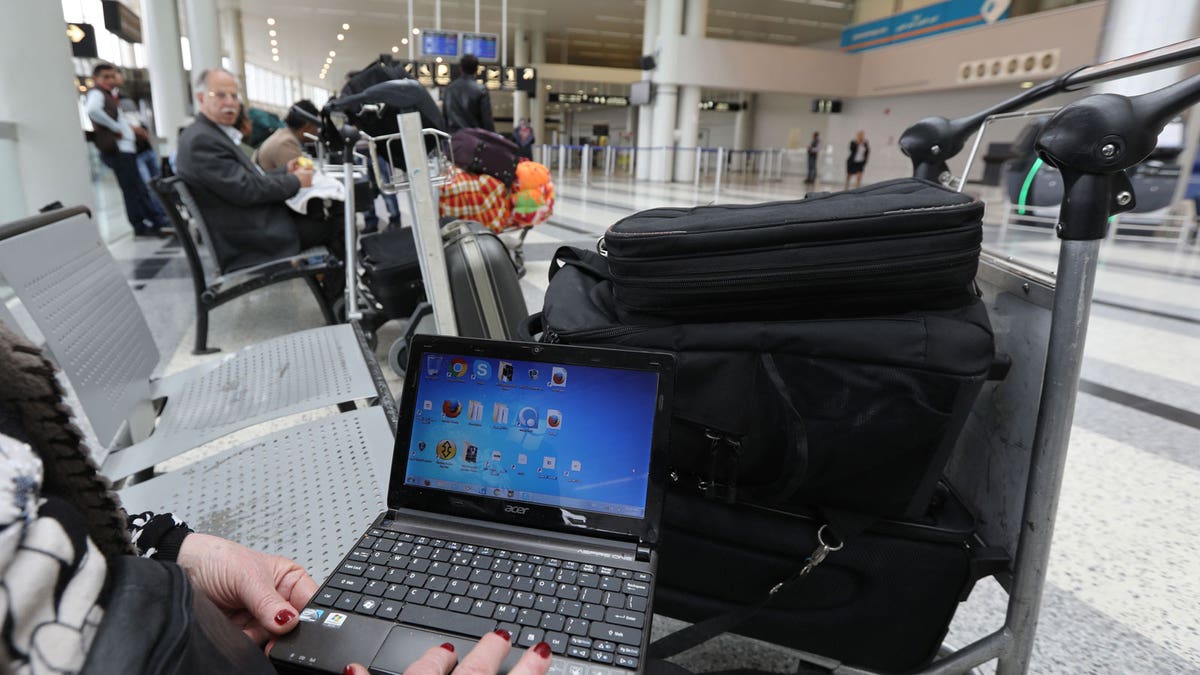
While the U.S. Department of Homeland Security (DHS) recently decided not to expand a ban that restricts all electronics larger than a cell phone from entering the cabin on direct flights from certain Middle Eastern countries, the ban is not off the table for Europe and other regions around the world.
DHS Secretary John Kelly said Sunday that his department was even considering extending the restrictions to all international flights arriving and departing the U.S. That would mean travelers flying in and out of the U.S. would need to check their laptops, tablets, and large cameras with the rest of their luggage before boarding their flights.
The rule would pose a problem both for outright theft and damage, as well as potential security breaches of private information. Especially for business travelers who may be carrying classified corporate information, the thought of checking a computer for a long-haul flight is not ideal.
“Both as a consumer and a computer security professional, I am not keen on checking a laptop in my bag,” Stephen Cobb, a systems security expert from the IT security firm ESET, told Travel + Leisure.
More From Travel + Leisure
If you’re traveling to one of the Middle Eastern airports already included in the order, or if you need to check a device in the future, here are some tips from experts for staying safe.
Pack it like the delicate flower it is
Cargo luggage is often tossed around while being loaded and unloaded, and that is unlikely to change in the event of a laptop ban. One shipping service recommended wrapping the device in bubble wrap and fitting it into a snug cardboard box when packing to prevent it from moving around.
The same principle applies to the bag in which it's packed — make sure everything is tight so the device won't be jostling around inside a bag.
Have a backup plan
Investing in an external hard drive or a laptop model where the drive pops out allows travelers the peace of mind of keeping their most important data with them in the cabin. An external hard drive is a good investment for anyone with a lot of important data, as damage to devices can happen anywhere, not just at 36,000 feet.
Take a cue from Mr. Robot
Encryption is the name of the game when it comes to traveling with valuable data, Cobb says. Most Windows and Mac operating systems have a full-disk encryption feature that users can enable in their settings.
Travelers looking for even more protection can download additional encryption software for their devices.
Create barriers to entry
Most people already have a passcode or password for their devices (and if you don't, create one right now). Make sure your password isn't easy to guess, and it's always best to add a second form of security, such as a biometric password like your thumbprint.
Clear off unnecessary documents
When traveling, only take the data that is absolutely necessary for your trip, says Michael Kaiser, executive director of the National Cyber Security Alliance (NCSA).
“You don’t need five years of tax returns with you when you travel,” he noted.
Log out of Facebook and Twitter
Social media users often check the box to keep themselves logged into Facebook and Twitter, or to shopping websites like Amazon. If someone was able to get into your computer, they would then have access to all of your accounts. To play it safe, it's better to log out of everything on your device before you leave, Kaiser said.
Be aware of your unique situation
Cybersecurity isn't one-size-fits-all, and each traveler should take into account not only where they're traveling to, but how valuable their data is.
“Like many things in security, it’s not a monolithic answer: it really depends what you’re taking with you on that device, what would happen if it was lost,” Kaiser said.








































